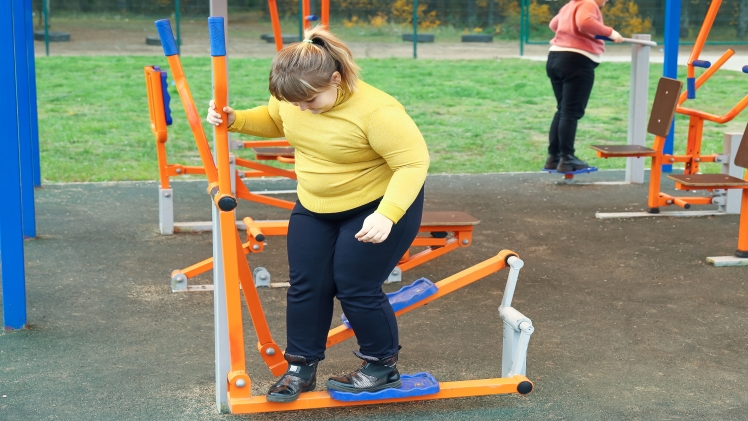Due to increasingly sedentary lifestyles and highly processed foods, obesity is quickly becoming one of the biggest global diseases. One who is overweight runs the risk of developing chronic lifestyle diseases including diabetes, heart disease, and others. Obese children are at a considerably higher risk for many health issues, both now and later in life.
Depression and low self-esteem are two mental health effects of childhood obesity. Therefore, it’s crucial to motivate your kid to eat well and engage in outside activities. So, in this post, we’ll talk about the risk factors for childhood obesity as well as some preventive strategies.
Childhood Obesity
Obesity in children is a health problem. Diabetes, hypertension, and other co-morbid illnesses related to obesity and morbid obesity are being found in an increasing number of children nowadays. If your child’s body mass index-for-age (or BMI-for-age) percentile is more than 95%, they are considered to be “affected by obesity.” If your child’s BMI-for-age percentile is between 85 and 95 percent, they are considered to be “overweight.”
Fatty liver disease, sleep apnea, Type 2 diabetes, asthma, cardiovascular disease, high cholesterol, gallstones, skin issues, irregular periods, hormonal imbalances, and difficulties with the bones and joints are just a few of the common medical conditions.
Causes of Childhood Obesity
The majority of childhood obesity cases are brought on by excessive eating and insufficient exercise. To support a child’s healthy growth and development, they need to eat adequate food. However, weight gain may occur if they consume more calories each day than they expend. Causes of childhood obesity may include:
- Eating and drinking high-calorie, low-nutrient food such as fast food, snacks, sweets, and soda.
- Excessive food consumption.
- Spending an excessive amount of time sitting down and watching TV or using a computer, tablet, or phone
- Getting insufficient exercise.
- In some circumstances. Childhood obesity may also be the product of inheritance as if both parents are overweight or obese, the children are more likely to gain weight as well. This is especially feasible in households where everyone generally consumes high-calorie diets.
- Certain criteria, such as residing in a low-income community and being surrounded by a nice market that sells fresh fruits and vegetables, are absent. As a result, such communities are compelled to consume far more carbs and processed foods than a healthy, low-calorie diet.
Treatment of Obesity in Children
Changes in diet and exercise level, as well as learning and using new coping mechanisms for boredom, anxiety, disappointment, and melancholy, are the common treatments for childhood obesity. But genetic and Hormonal causes of childhood obesity
might play a role as well. Medication or weight-loss surgery is rarely used to treat childhood obesity. Here are the common treatment options they are;
- At mealtimes, try to stay away from the TV, computer, and video games as they can encourage overeating and divert children’s attention from their fullness signals.
- Don’t make them “clear their plate” after they’re done eating; doing so encourages kids to ignore fullness signs. Instead, let them eat until they’re satisfied.
- Physical activity helps children’s bones and muscles grow stronger, aids in their ability to fall asleep and get quality sleep, and can increase their mood and energy levels in addition to helping them burn calories.
- Give your child whole foods, such as fruits, vegetables, whole grains, seeds, nuts, and lean proteins, as a priority.
- Serve milk, water, seltzer, or diluted fruit juice as an alternative.
- Make sure your child receives a sufficient amount of good sleep. Lack of sleep can cause weight gain by increasing ghrelin levels, the hormone that controls appetite.
You can discuss prescription weight reduction drugs with your child’s doctor if diet and lifestyle modifications aren’t successfully treating or preventing obesity.
Conclusion
There is an increasing trend in childhood obesity. As a result, it is our responsibility as parents to prevent the children from putting on weight. The top endocrinologist recommends that your children eat healthily and participate in outdoor activities and other forms of exercise. Childhood obesity is easily avoidable; all we need is determination and the appropriate strategies. If you are concerned that your child is overweight or obese, schedule a consultation with a healthcare practitioner from the best pediatric hospital.

